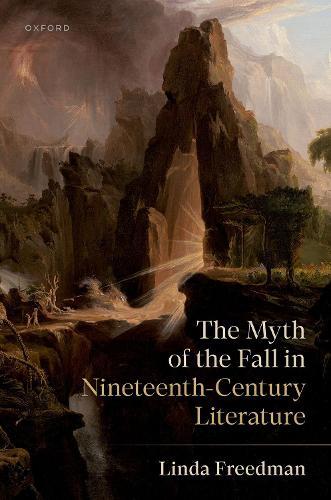Overview
Why does the myth of the Fall continue to matter in an increasingly secularised world? Why do we continue to imagine a point where everything went wrong, and why must we imagine that things were once better than they are now? Modern political theodicies repeatedly play to the myth of the Fall as empowering human authorship, promising to 'take back control' or 'make America great again'. The myth of the Fall is so absorbed into western culture that we sometimes don't even notice it's there, let alone think about why and how it has persisted through secularisation. It is often pernicious, playing on feelings of innate supremacy and lost dominion. Linda Freedman shows that it is also creative, the first act of disobedience and resistance which set new human stories in motion and gave narrative shape to existence. Nineteenth-century writers were so steeped in Christian traditions that the Fall remained an ineluctable structure of thought and even those who resisted or tried to secularise its doctrinal orthodoxies tended to affirm its logic. It was a political, social, and cultural force as well as an aesthetic preoccupation, a way of reflecting on the limitations and possibilities of art and literature, driving innovations in prose, poetry, and the novel. Rethinking narratives of American exceptionalism with transatlantic and anti-racist writings, Freedman captures some of the most theologically imaginative and aesthetically and politically interesting textures of the Fall in nineteenth-century literature. The myth of the Fall survives as much more than a judgmental and repressive social mechanism and mattered to people living vastly different lives--this is partly due to the adaptability and force of its narrative logic and partly because it gives narrative time the feel of a quest, an infinite search for meaning. The Fall holds onto the otherworldly and the unworldly. It serves as a formal metalanguage, a residually, and sometimes explicitly, religious aesthetic, an origin myth of modernity--a source for being in time.
Full Product Details
Author: Linda Freedman (Associate Professor of English and American Literature, Associate Professor of English and American Literature, University College London)
Publisher: Oxford University Press
Imprint: Oxford University Press
Dimensions:
Width: 16.50cm
, Height: 2.20cm
, Length: 24.00cm
Weight: 0.648kg
ISBN: 9780198969570
ISBN 10: 0198969570
Pages: 304
Publication Date: 15 August 2025
Audience:
Professional and scholarly
,
College/higher education
,
Professional & Vocational
,
Postgraduate, Research & Scholarly
Format: Hardback
Publisher's Status: Active
Availability: To order

Stock availability from the supplier is unknown. We will order it for you and ship this item to you once it is received by us.
Author Information
Linda Freedman is Associate Professor of English and American Literature at University College London. She teaches broadly, covering works from the Romantic Period to the mid twentieth-century. Her work is transatlantic and interdisciplinary and she has a particular interest in poetry and in the relationships between literature, theology, and the visual arts. She is the author of Emily Dickinson and the Religious Imagination and William Blake and the Myth of America.



